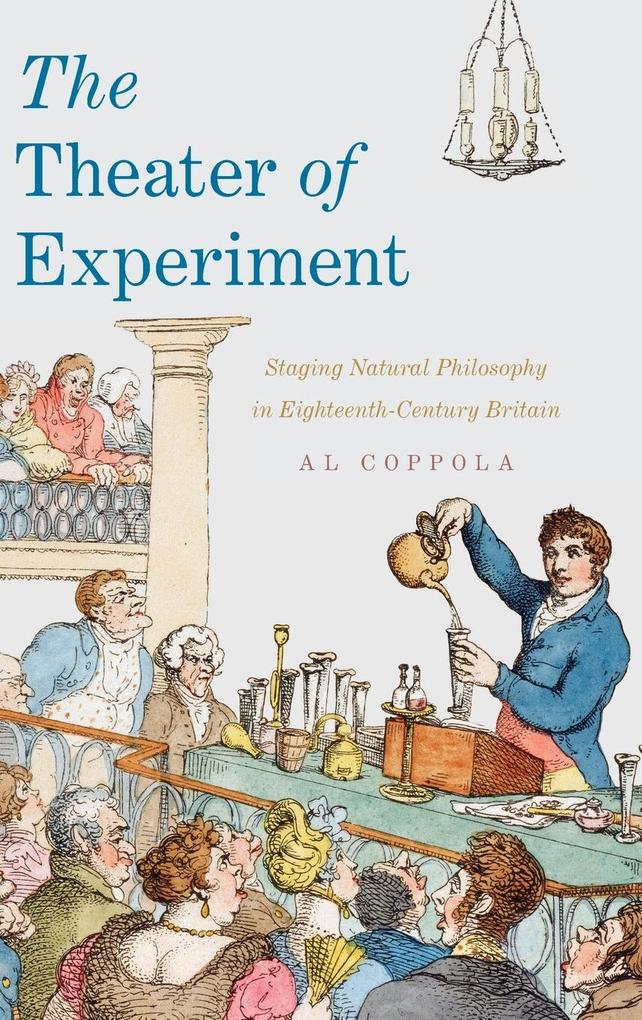The first book-length study of the relationship between science and theater during the long eighteenth century in Britain, The Theater of Experiment explores the crucial role of spectacle in the establishment of modern science by analyzing how eighteenth-century science was "staged" in a double sense. On the one hand, this study analyzes science in performance: the way that science and scientists were made a public spectacle in comedies, farces, and pantomimes for purposes that could range from the satiric to the pedagogic to the hagiographic. But this book also considers the way in which these plays laid bare science as performance: that is, the way that eighteenth-century science was itself a kind of performing art, subject to regimes of stagecraft that traversed the laboratory, the lecture hall, the anatomy theater, and the public stage. Not only did the representation of natural philosophy in eighteenth-century plays like Thomas Shadwell's Virtuoso, Aphra Behn's The Emperor of the Moon, Susanna Centlivre's The Basset Table, and John Rich's Necromancer, or Harelequin Doctor Faustus, influence contemporary debates over the role that experimental science was to play public life, the theater shaped the very form that science itself was to take. By disciplining, and ultimately helping to legitimate, experimental philosophy, the eighteenth-century stage helped to naturalize an epistemology based on self-evident, decontextualized facts that might speak for themselves. In this, the stage and the lab jointly fostered an Enlightenment culture of spectacle that transformed the conditions necessary for the production and dissemination of scientific knowledge. Precisely because Enlightenment public science initiatives, taking their cue from the public stages, came to embrace the stagecraft and spectacle that Restoration natural philosophy sought to repress from the scene of experimental knowledge production, eighteenth-century science organized itself around not the sober, masculine "modest witness" of experiment but the sentimental, feminized, eager observer of scientific performance.
Inhaltsverzeichnis
- Introduction
- Science as Performance; Science in Performance
- Against the Virtuosi
- A Matter of Concern
- Prologue: "Bare Unfinish'd Histories": The Rehearsal of Natural Philosophy
- Buckingham amid the Virtuosi
- Bacon, Dryden, Sprat and the Labyrinth of Induction
- 1. The Spectacle of Experiment and the Politics of Virtuoso Satire in the 1670s
- The Modest Witness as Eager Spectator: Boyle in the Theater of Experiment
- The Virtuoso Discovered: Shadwell, Hooke and the Royal Society
- The Virtuoso Beyond Science: Bad Men and Bad Manners
- The Virtuoso as Reactionary: D'Urfey's Madam Fickle
- Virtuoso Satire and the Purification of Natural Philosophy
- 2. Retraining the Virtuoso's Gaze: The Emperor of the Moon and the
- Spectacles of Science and Politics
- The Virtuoso's Gaze Reformed: Tory Politics and Natural Philosophy
- "Hold Doting Fool, put on your Spectacles": The Show of Politics in the 1680s
- Spectacle against Enthusiasm: Behn's Emperor and the Exclusion Crisis
- Dryden's Albion to the Moon: Political and Theatrical Pressures in 1687
- 3. Physiology, Commerce and Comedy: Three Hours after Marriage and
- A Bold Stroke for a Wife
- The Virtuoso Vindicated
- From the Old Physiology to the New Psychology
- Soft Comedy and Whig Science
- Scriblerian Lampoon as Humoral Purge
- Centlivre's Humorous Circulation
- 4. Harlequin Newton: Faustus Pantomimes and Public Science in the 1720s
- "To Gaze Surpriz'd": The Panorama of Science, Magic and Pantomime
- "Surprizing Phaenomena" and the Attraction of Popular Newtonianism
- "One Wide Conflagration": The Pleasures of Harlequin Faustus
- Defoe, Conjuring and the Science of the Pantomimes
- The Force Field of Public Science
- 5. Modest Witnesses and Eager Spectators: Engendering Enlightenment
- Science
- "This Woman-hood of Yours Seems to be Mightily in the Way
- Appropriating Moliere's Learned Ladies
- Cibber, Centlivre and The Vanishing Virtuosa
- Enlightenment Periodicals and Science "for the Ladies"
- Embodying the Eager Spectator
- Epilogue: Rehearsing Spectacle
- From Spectacles to Spectators
- Reflexive Empiricism and Fielding's Spectators
- Bibliography












